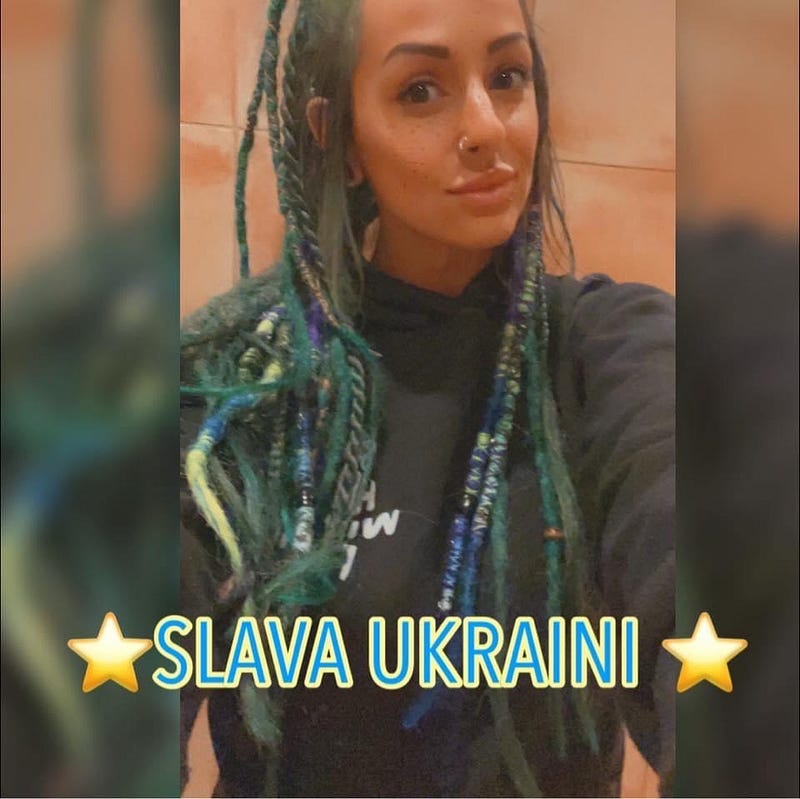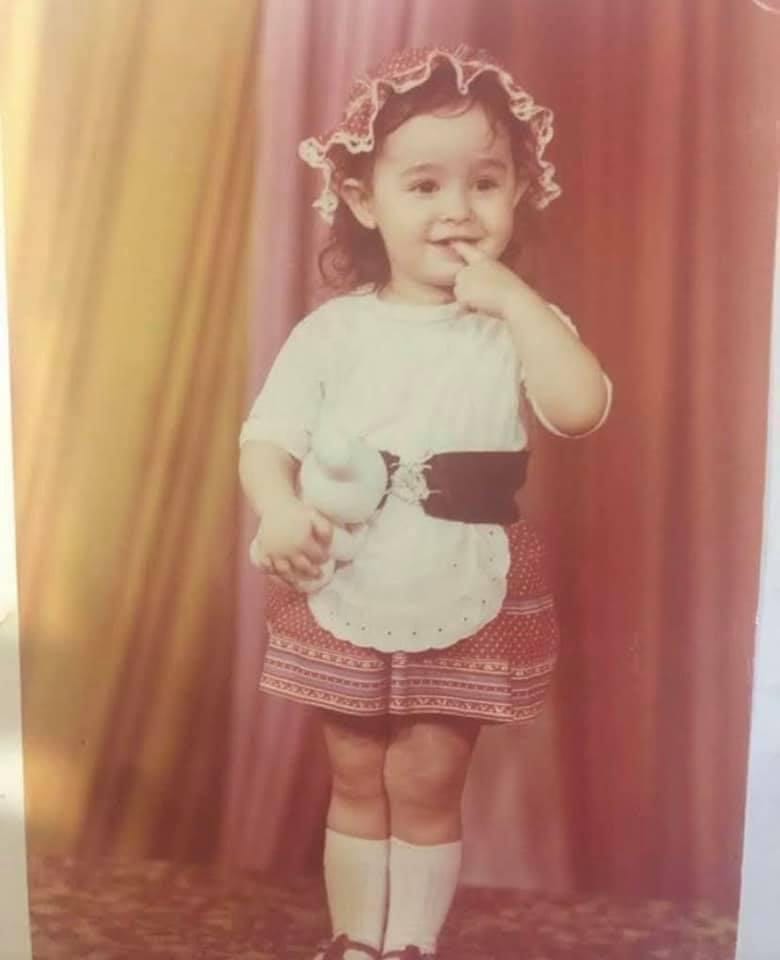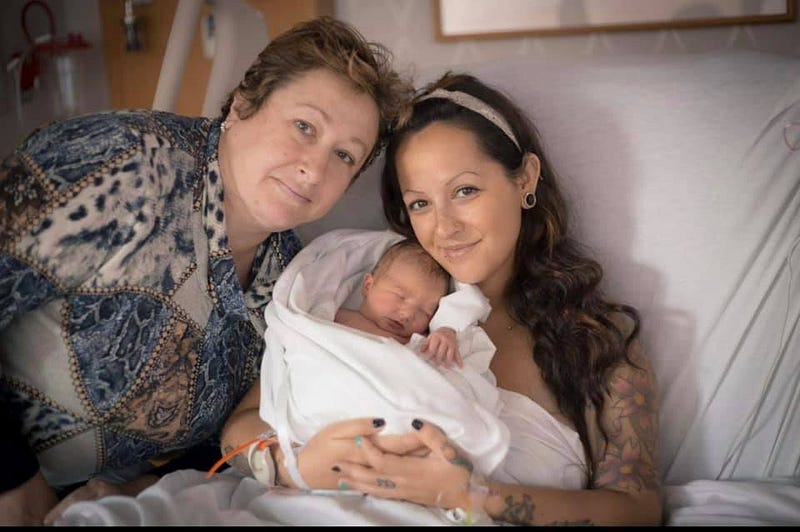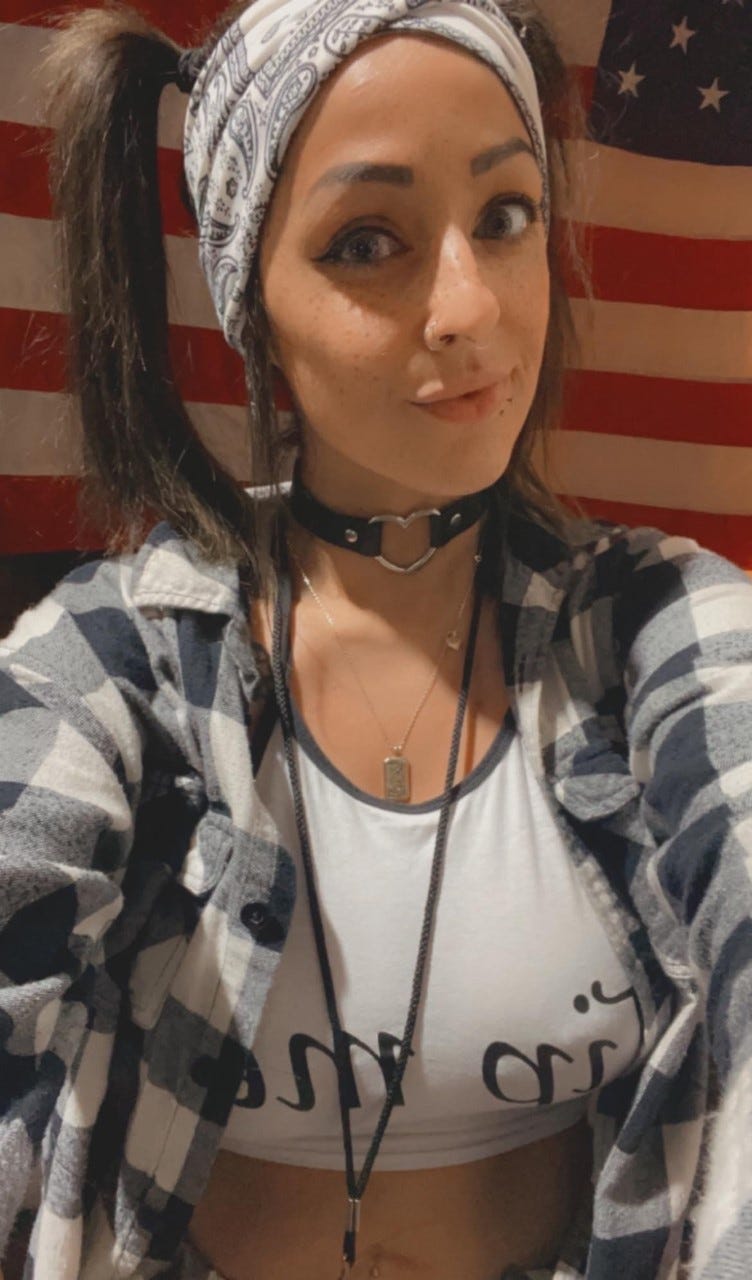Marishka

Marishka is one of those online friends that you’ll probably never get to meet in person, but they’ve changed your life in one way or another. We ‘met’ through a tight-knit Facebook group, and when she joined everyone instantly fell in love with her. She’s an intimidatingly beautiful traveling bartender who drives a motorcycle and has the feisty personality to match. She immigrated from Kharkov, Ukraine as a child.
I was sitting in the car on vacation in New Orleans when I reached out to Marishka. Russia had very recently attacked Ukraine and invaded Kyiv. I debated the wording of my message when reaching out because I wasn’t sure how to word it without sounding offensive or politically incorrect.
“Hey friend. I have a new phone, so I don’t have your number anymore but I’m so sorry for everything that’s happening in Ukraine. I love you and we’re here if you need anything or want to talk. Praying for your friends and family.”
Marishka gave me her number and I asked if she had heard from all her family back in Ukraine. I never truly understood freedom until I read her reply.

“No, just my two cousins. Still a lot of people unaccounted for. I’ve been trying every day. Hours at a time. It’s just so fucking surreal. It’s so fucking traumatizing and I don’t know how to explain it to anyone. I’m old enough to remember when it first happened.
How bad it was. How hard life was. Waiting in line for two hours for milk and bread just to be told they’re out. Not being able to get food for days. Trading with neighbors to survive.
I remember all this shit SO vividly like it was yesterday. My dad’s so traumatized right now he can’t even turn the news on. He can’t talk about it AT ALL. The PTSD is really fuckin real and no one here really gets it. And all I want to do is talk about it because it’s the only way I know to cope. I’m actually grateful that my mom isn’t around today to see this because this would literally kill her.”

Marishka had recently and unexpectedly lost her mother. Her father was unable to speak about it and the only other person to who she could relate was gone. I cried in the parking lot and scrambled to think of questions to keep talking about it, hoping it would ease her mind to let it out. I asked Marishka when she came to the US. Her response was gut-wrenching.
“People don’t understand that I came here on a REFUGEE visa in 99. A WAR refugee visa SPECIFICALLY for Jews because we were still being targeted in Ukraine. In NINETEEN NINETY-NINE.”
Marishka apologized to me after this statement for what she referred to as “typing aggressively.” While sharing the most intimate details of her life story, she was worried about my opinion. If there’s anything that can attest to her character more, I think that would be it. I asked her if there was a way for her to send supplies to her family.
“Right now, there’s nothing we can do. No banks have money to be taken out. Digital currency is useless. There is no mail at all. They’re trying to flee. So hopefully if they can get to Bulgaria, they’ll be ok, and then I can send them money and stuff. But inside the borders, they are completely on their own.
I do want to see if I can get some packages together for the orphanage my mom worked with. I can’t even imagine what’s happening there. A lot of those kids had disabilities. I feel like they were just left behind.”
Marishka has since heard from all of her family back in Ukraine, and the news she received was not what she was hoping for. Two were able to evacuate to Moldova. Unfortunately, the rest are in Ukraine, living in bunkers. They are unable to receive mail and have no access to money, and she is unable to do anything but hope that they remain safe.

There is a pain in Marishka’s story, but it also holds the true meaning of freedom.
As I originally wrote this, I thought of freedom as an Americanized concept. I wrote how we have all these material possessions and rights that people don’t have in many countries. She sees freedom differently. After consulting with her about how this was originally written, I have decided to rewrite, from here on out, freedom from the perspective of a Ukrainian immigrant.
In 1922, Russia, Ukraine, Belarus, and Transcaucasia formed the USSR with Russia as its largest country. Anti-communist revolutionaries formed the Ukrainian Student Union and fought against the Soviet Union, gaining serious support in August 1989. Seeking independence and protesting recent parliamentary elections, the citizens of Ukraine stood together unwaveringly in a human chain hundreds of miles long in 1990. Tents were set up on the granite of Kyiv’s October Revolution Square (today known as Maidan Nezalezhnosti). This was known as the Revolution of Granite. The students went on a hunger strike until Vitality Masol, the Soviet-Ukrainian leader, conceded to Ukraine’s first ever Prime Minister, Vitold Fokin. Ukraine became independent in 1991. Though this marked a historic win for Ukraine, it was also the beginning of an eight-year recession. From 1991–1999, Ukraine suffered greatly due to government corruption and extreme inflation. Citizens fell on hard times, and the Jewish population suffered worse than others.
Poverty swept the country, and many stood in line for food they would never receive. Still, Ukrainians worked hard as farmers, merchants, bakers, and laborers doing what they had to survive. Instead of possessions, they took pride in their families and communities. Ukrainians took no hesitation when sharing what they had amongst themselves. The focus was placed on finding happiness and joy where others would find sorrow.
Marishka’s mother worked as an engineer in Ukraine, and they struggled greatly financially. Still, her family worked for what they had. They did what they needed to survive, and Marishka was taught the value of helping others while she herself had very little.
As is widely known, being Jewish was not allowed under the communist regime, and Jewish people had to be identified on their official government documents. Though communism in Ukraine had been dissolved, antisemitism had not. The general treatment of Jewish Ukrainians was horrid. They were not allowed certain rights such as attending many universities and being treated like lesser humans. Marishka and her family left in 1999, obtaining refugee visas, and seeking a new life in the United States away from Jewish persecution. Antisemitism is still an issue in Ukraine today.
Her mother went on to start a non-profit organization in the US that focused on placing orphaned Ukrainian children with American families after adopting a young boy herself.
On February 24, 2022, Vladimir Putin commanded Russia to attack Ukraine. Marishka was reminded of her childhood and how she suffered. Yet somehow, she also thinks of how proud and strong her people were during the hardest of days. She loves her home country, and it pains her to see them in its current state. Still, she watches with pride as they fight back against Russia, and she knows that while her family is suffering, they will prevail under Volodymyr Zelenskyy.
When I think of freedom, I think of Marishka, and how proud I am of her. You would never know her struggles if you saw her. She’s built a name for herself. She has children of her own now who are the first American-born generation on her side. She has a family, a career, and so many other things that she had to establish on her own. With permission, I have shared her story, because to know Marishka is to know freedom. Freedom is what you fight for, not what you’re given. This is how she wants us to think of Ukraine. They are humble, yet resilient, and Ukraine will not give up without a fight.
Slava Ukraini
originally published on Vocal media at https://vocal.media/humans/marishka
All photos used were provided with permission by Marishka from her personal Facebook page.






